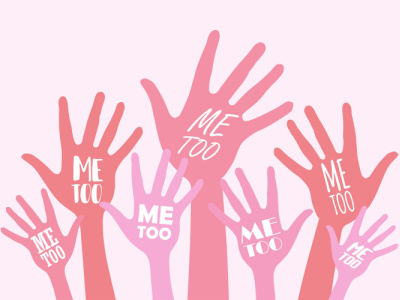Initiated by the social media activity of sexual assault survivor and activist Tarana Burke, the #MeToo movement began nearly 20 years ago in 2006 and gained increased prominence in the late 2010s with sexual assault allegations—and ultimately convictions—against media mogul Harvey Weinstein. The movement has gained particular traction in the world of big media, from network news to television, film, and music. But to what extent has the movement created change in the less glamorous industries most of us work in?
In an article for BBC Worklife, Maddy Savage explores the ways the #MeToo movement has impacted work life.
Greater Accountability
One important change is an apparent increase in accountability for bad actors. “Research suggests that Me Too has driven an increase in CEO firings for sexual misconduct, and that, compared with five years ago, workers are more confident that speaking out about sexual harassment or assault will have an impact,” Savage says. She points to a 2022 Pew Research study showing that about 7 in 10 people in the United States “believe bad actors are more likely to be held responsible for these types of behaviours in the workplace.” At least 6 in 10 believe accusers are more likely to be believed today than they would have been in 2017. “In a similar poll for a major union federation in England and Wales, seven out of 10 people who participated agreed that Me Too had allowed employees to be more open about sexual harassment,” she says.
Legal Changes
Even when businesses choose not to respond to the #MeToo movement, many governmental jurisdictions have stepped in to impose changes in how harassment is treated in the context of work.
There have been several legal developments since the #MeToo movement emerged, Savage notes. “In the US, a new law means that employees alleging harassment can’t be forced into confidential—rather than open—arbitration proceedings. Employers in South Korea are now legally bound to investigate any harassment claims involving their staff (including at off-site locations such as karaoke bars), while Spain has toughened its definition of consent.”
Impact on DEI Efforts
The #MeToo movement has also helped highlight women’s struggles in the workplace in the broader context of diversity, equity, and inclusion (DEI) that’s often more heavily focused on addressing racial and ethnic disparities.
“Many employees themselves have also initiated changes to company culture in the wake of Me Too,” Savage adds. “This includes setting up women’s support groups and organising women-focused events, focused on tackling workplace harassment, and empowering more women to take on management positions, which research suggests can help limit workplace harassment.”
While the #MeToo movement really came into its own in the context of glitzy Hollywood, the movement has had important global impacts on how sexual harassment and assault are treated in the workplace.
Lin Grensing-Pophal is a Contributing Editor at HR Daily Advisor.
The post How Has the #MeToo Movement Changed the Workplace? appeared first on HR Daily Advisor.
